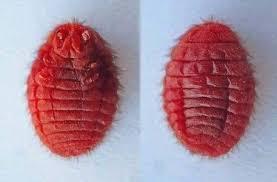this is the bug used for red candies.
Κατηγορίες
- Sustainability
- Κεντρική Σελίδα
- Wellness
- Theater
- Sports
- Shopping
- Religion
- Party
- άλλο
- Networking
- Music
- Literature
- Art
- Health
- Gardening
- Παιχνίδια
- Food
- Fitness
- Film
- Drinks
- Dance
- Crafts
- Causes
Διαβάζω περισσότερα
Exploring the Future of Artificial Intelligence in Art
The future of artificial intelligence (AI) in art is poised to revolutionize how we create,...
Eat healthy stay healthy
We should eat healthy food.
Healthy food make us active and strong
"The Benefits of Learning a New Language"
Learning a new language offers numerous benefits that extend beyond mere communication.
1....
Importance of environment
Environment is very important for us as we are able to preach and do many things . Healthy...
AI ( Artificial Intelligence )
Artificial intelligence (AI) is a concept that refers to a machine's ability to perform a task...
×
Your daily access limit has been reached. Please try again tomorrow.
© 2025 GoSharpener Pvt.Ltd.
Refund and Cancellation policy - We do not entertain any refunds and cancellation
Refund and Cancellation policy - We do not entertain any refunds and cancellation


Allergic reactions
Some people may experience allergic reactions to cochineal extract, including hives, itchy skin, rhinitis, diarrhea, and anaphylaxis.
Labeling
In the US, the FDA requires that cochineal extract be identified by name on food labels.
Pasteurization
The FDA also requires that cochineal extract be pasteurized to destroy any salmonella.
Vegetarian
Cochineal is not suitable for vegetarians because it's made from insects.
Cochineal extract is derived from the female cochineal, a type of insect that lives on prickly pear cacti. The insects are sun-dried, crushed, and treated with an acidic alcohol solution to produce carminic acid, which is then used to make cochineal extract.
Cochineal extract is used in many foods and drinks, as well as in cosmetics and pill coatings.